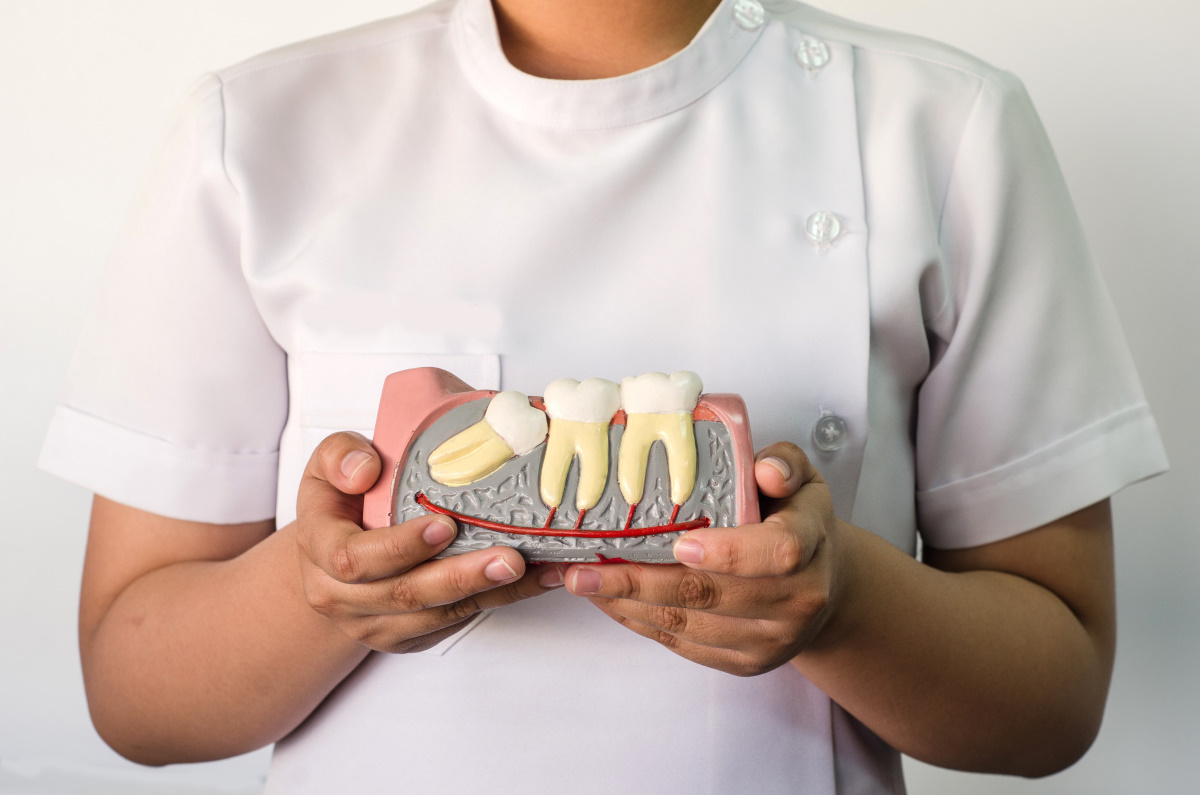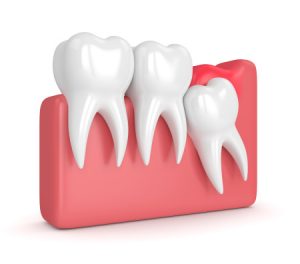
Wisdom teeth, less commonly known as the third molars, are always the last teeth to grow.
They begin to appear during late adolescence and early adulthood, with most people having four wisdom teeth.
Wisdom teeth can develop at odd angles, which sometimes causes them to grow under the gums rather than break through them. When the teeth are stuck or don’t have enough room to erupt, they become impacted.
Impacted teeth are prone to a variety of dental health problems including decay, gum disease, and bone damage.
When wisdom teeth fully erupt, they can cause pain and discomfort for the individual. The third molars don’t have much use in chewing or biting, so getting them extracted wouldn’t affect your eating habits.
Contents
Signs of Impacted Wisdom Teeth
Impacted wisdom teeth don’t always show severe symptoms, but when the tooth gets infected, it will cause varying levels of discomfort or pain.
Some of the most common signs of infected wisdom teeth include: 
- Jaw pain
- Swollen or red gums
- Difficulty opening or closing the mouth
- Tender or bleeding gums
Of course, everyone experiences these symptoms differently. Some may only have one or two symptoms while others are subjected to all of them. The pain caused by infected wisdom teeth is not consistent and may last for a couple of days then disappears for weeks before coming back again.
If you’re experiencing any of the above symptoms, it’s best to consult a dental professional before the impacted teeth get worse.
Consequences of Ignoring Impacted Wisdom Teeth
Although some people can get away with not removing their wisdom teeth, most will have to deal with dental issues prior to getting them extracted.
 Impacted wisdom teeth stay below the gums and grow sideways, affecting the surrounding molars. When they don’t grow straight, the pressure on the other teeth increases, causing overcrowding and pain in the jaw.
Impacted wisdom teeth stay below the gums and grow sideways, affecting the surrounding molars. When they don’t grow straight, the pressure on the other teeth increases, causing overcrowding and pain in the jaw.
The need for orthodontic treatment after getting an impacted wisdom teeth removal is quite common, as the teeth may have gotten shifted and changed your bite.
Infected wisdom teeth can cause cysts, which are fluid-filled sacs, to grow on the surrounding gums. If left untreated, the cysts can destroy roots, bones, and gums.
Since wisdom teeth are located at the back of the moth, they can be harder to reach and care for. When not properly cleaned, bacteria will begin building up and creating infections or leading to tooth decay.
Tooth Extractions in Carleton Place
Have you been experiencing pain or discomfort in the back of your mouth or your jaw?
Wisdom teeth become impacted when they don’t erupt perfectly straight, resulting in the molars being partially or fully under the gums and disturbing surrounding teeth.
When not taken care of early on, impacted wisdom teeth can cause severe damage to your dental health. From wisdom teeth removal to pulling infected or damaged teeth, our dental professionals strive to make your experience as pain-free and comfortable as possible.
Get in touch with us to learn more about wisdom teeth extractions and book your consultation today.



